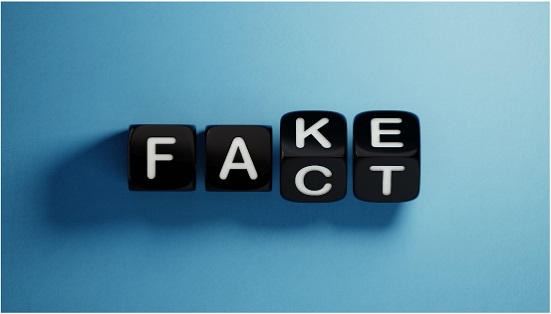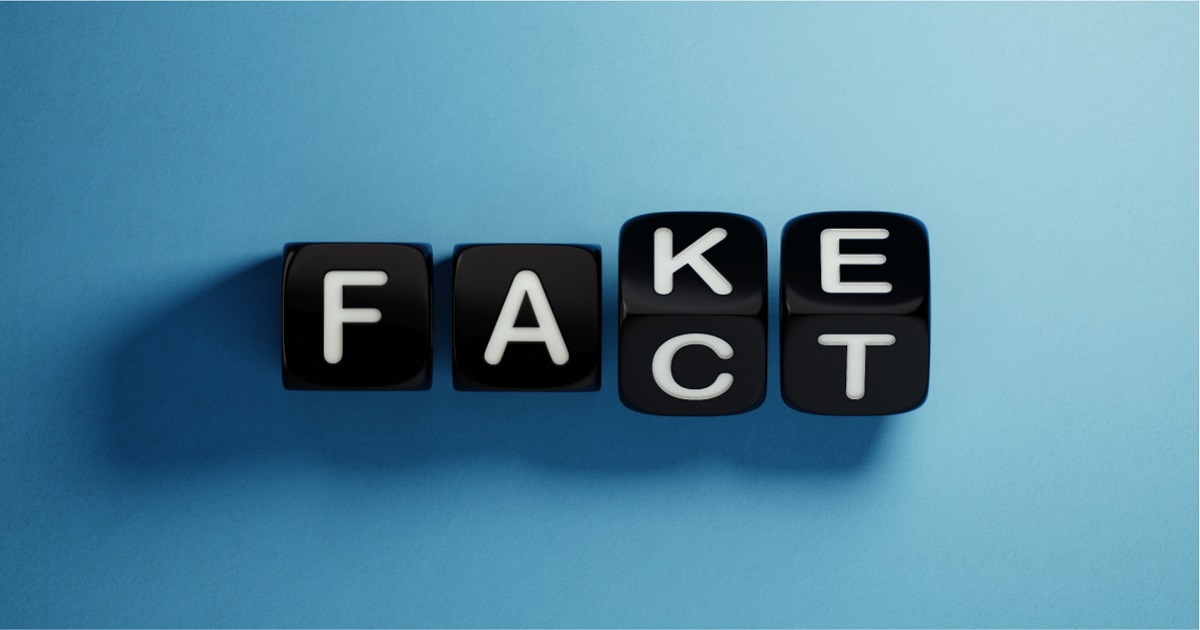Can Blockchain Technology Put an End to Fake News?
The recent rise of blockchain technologies has increased the need to adapt and learn vital skills in the IT-ITeS industry. Since bitcoin’s gradual rise to fame starting in 2008, many companies and individuals have started to realise that blockchain could be used for more than cryptocurrency.
Blockchain Technology Explained

What is blockchain technology? Simply put, blockchain is a digital ledger of transactions where each block in the chain contains a number of transactions. Every time a new transaction occurs, a record of that transaction is added to every participant’s ledger — as the data is duplicated and distributed across the entire network of computer systems on the blockchain.
The recorded data is unalterable on the blockchain, so it’s impossible to change, hack, or cheat the system. This way, we can imagine how blockchain technology can possibly be used to stop false or manipulated information, such as in fake news. Blockchain is also considered an industry disruptor; as a result, the past decade has brought in massive investments into figuring out how blockchain technology impacts industries such as insurance, voting, healthcare, supply chains, and law.
In his article on ‘How Blockchain is Disrupting the Legal Sector’, James Gonzales talks about blockchain can be applied to government and legal contracts. For instance, instead of traditional contracts, blockchain can be used to produce smart contracts. These are defined as “a set of terms and conditions that can be automated”, which are self-renewing and thus remove the need to hire a legal team and pay long-term fees. Because of this, Forbes reports that almost 15% of financial institutions are currently using blockchain technology as of 2018. This vast potential can also be applied to the process of authenticating, defeating, and ultimately eradicating fake news on a global scale.
Blockchain vs Fake News
Fake news has been rampant across social media platforms such as Facebook in recent years. An article on fake news in India notes how challenging it will be for would-be-fact-checkers to combat fake news in the country’s 23 official languages, with Facebook only hiring contractors to verify content in 10 of those languages. Moreover, millions of India’s new digital users share bogus or unverified content at an alarming speed.
Only recently are tech companies building tools to automate fact-checking, hiring in-house content moderation teams, and drafting community guidelines. In a joint effort to prevent the spread of fake news, Facebook — along with Amazon Web Services, Microsoft, and academics from top universities — has recently launched the Deepfake Detection Challenge. VentureBeat reports that the goal of the project is to “produce technology that everyone can use to better detect when AI has been used to alter a video in order to mislead the viewer.” The good news is that by 2023, it is estimated that around 30% of worldwide news including video clips will be authenticated by blockchain ledgers, according to the co-author of the "Predicts 2020: Blockchain Technology" report.

Recently, the South China Morning Post announced that China is taking the necessary steps in order to take the blockchain lead from the US, for the technological and industrial development of their country. In fact, it is reported that Chinese companies have filed more patents on blockchain than any other country in the world. Currently, the US and China are already involved in a tech war over the technology of companies like Huawei, and according to analysts, “any advancement of China’s expertise in blockchain could open up a new front in the conflict.” Interestingly, China has banned the most popular application of blockchain tech, namely bitcoin and all other forms of cryptocurrency. However, the launch of Facebook’s digital currency named Libra is of vital importance to China’s policymakers. Meng Yang, deputy head of the Chinese Institute of Digital Assets, states that “Money issuance, even on the internet, is a matter of state sovereignty. China cannot afford to concede or lose.”
What will happen when the hype of blockchain technology eventually cools down? It still hasn’t been fully embraced by companies, which have only breached the surface of its potential. According to Ken Elefant, managing director of investment firm Sorenson Capital, its impact can alter the fact of industries but “its adoption will be slow because it can't happen in a vacuum; it will require a shared ecosystem among enterprises; one company can't simply adopt it and expect returns on its investment without others climbing onboard.” As such, hybrid forms of blockchain are where the future of the technology lies, first for businesses then gradually branching out towards consumers.
As the potential of blockchain technology continues to unfold, it becomes evident that its applications extend far beyond cryptocurrency. One of the promising areas is its role in combating fake news. By providing a transparent and immutable ledger of transactions, blockchain can ensure the authenticity of information. This could revolutionize how news is verified and distributed, reducing the spread of misinformation. For those interested in exploring this transformative technology, enrolling in blockchain courses on FutureSkills Prime is an excellent step. These courses offer comprehensive insights into blockchain technology, equipping learners with the skills needed to navigate and leverage this innovative field. Understanding blockchain fundamentals not only opens doors to numerous career opportunities but also positions individuals at the forefront of technological advancements. Embrace the future by diving into blockchain courses and become part of the solution to today's information challenges.
Stay ahead of the curve and fuel your curiosity with our comprehensive and engaging popular blogs.:-
https://futureskillsprime.in/knowledge-center/tech-simplified/public-blockchain-explained
Written By Viola Morton


